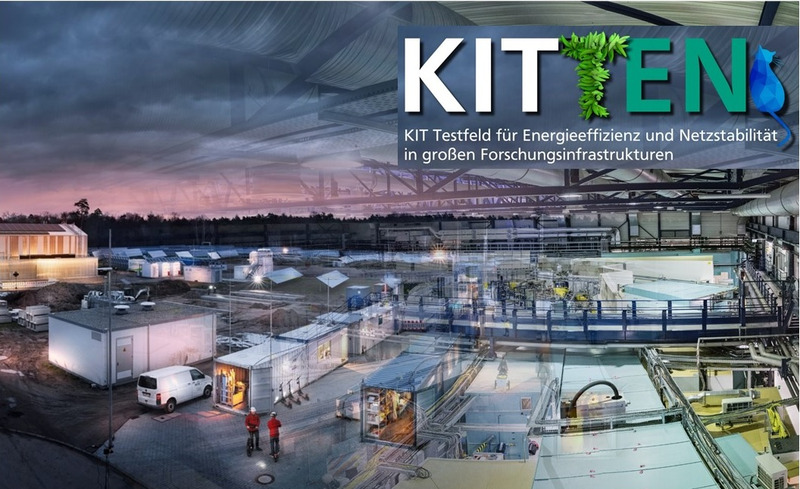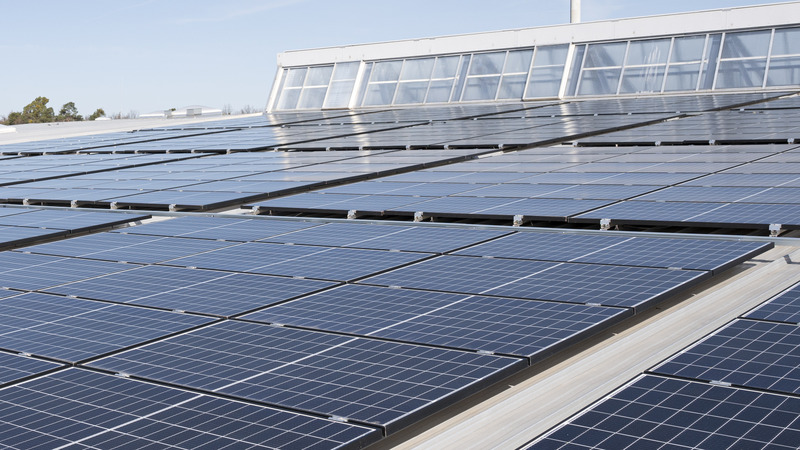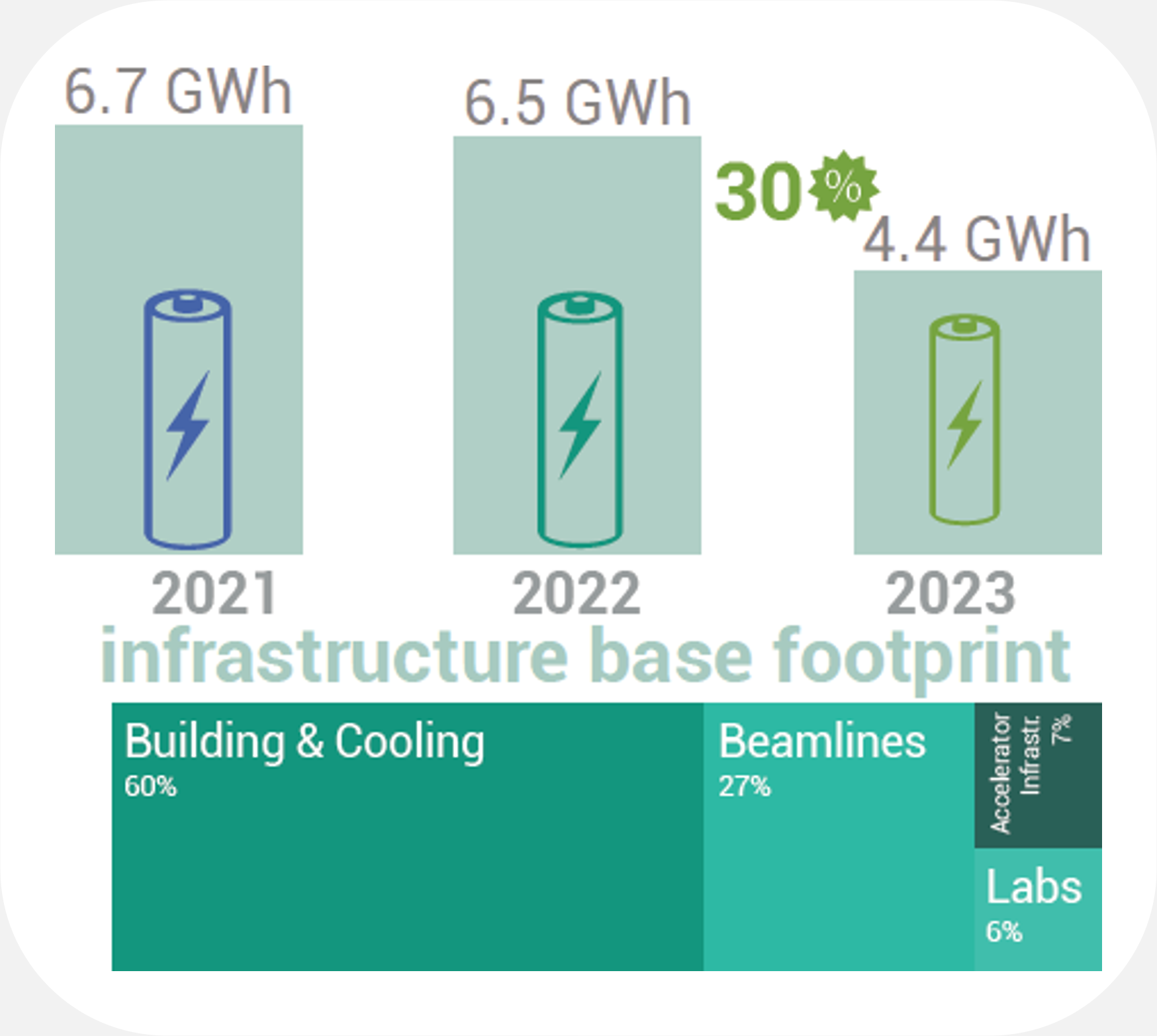Resources-responsible, energy-responsible and sustainable frontier R&D
Sustainability
Resources-responsible and energy-responsible R&D
|
The KIT IBPT as the nucleus of the ATP has sustainability in focus since its foundation in 2016. Frontier research and development can be sustainable by using resources and energy responsibly. This also includes the reduction of energy and electricity usage for the reduction of the CO2-footprint of research facilites and of gases and materials employed in components. The research building 348 at KIT hosts the accelerators (KARA), several beamlines using X-ray synchrotron radiation, several specialized laboratories surrounding the accelerators, and operates the building's air conditioning and temperature-control system. Within projects hosted by the test field KITTEN the infrastructure's energy consumption base footprint could be reduced by 30 % from 2022 to 2023. For comparison: a single-person household in Germany (1-Personen-Haushalt) uses per year 2.1 MWh for electricity and 8.7 MWh for heating, a total of 10.8 MWh (source: Statistisches Bundesamt, destatis.de, newest data from 2021, status September 2023). The 4.4 GWh base consumption of the research building thus corresponds to 407 persons at home. The research building hosts more than 400 guest scientists (per year and on average) plus KIT personell working on frontier R&D to serve society and provide solutions to the central questions of our time. |
|
KITTEN is a union of two unique entities: KARA and the Energy Lab 2.0.
The Energy Lab 2.0 at KIT is Europe's largest research infrastructure for renewable energy.
KIT test field KITTEN

The KIT Testfeld für Energieeffizienz und Netzstabilität in großen Forschungsinfrastrukturen (KITTEN) is a joint test field of KARA and Energy Lab 2.0 and researches energy solutions for energy efficiency and grid stability in large-scale research infrastructures.
| Links | Description |
| Link | Karlsruhe Research Accelerator (KARA) |
| Link | Energy Lab 2.0, Europe's largest research infrastructure for renewable energy |
Transfer and Outreach
| Links | Description | |
| Link | KIT press release on KITTEN - Designing Large Accelerators for Energy Efficiency and Sustainability New KIT Test Center for Energy-efficiency and Grid Stability in Large Research Infrastructures |
2022/07 |
| Link | Inauguration of KITTEN within framework program and transfer events of "Code of the Universe" incl. Vernissage, Afternoon Science, Podium Discussion - link |
2022/07 |
Projects
[C] = Coordinator, "Link" leads to more detailed project information incl. funding agency and funding volume.
| Links | Description | Startdate | Enddate |
| Link | Project: Innovation pool project for Energy Efficient Accelerators (InnovEEA), KIT with Partners in the Helmholtz Association [C] S. Grohmann (KIT ITTK - Institut für Technische Thermodynamik und Kältetechnik - Refrigeration and Cryogenics) |
2021/01 | 2023/12 |
| Link | Project: BMBF ErUM-Pro Materie - ACCelerator Energy System Stability (ACCESS), KIT with TU Darmstadt [C] G. De Carne (KIT ITEP - Institute for Technical Physics - Real Time System Integration) |
2022/10 | 2025/09 |
| Link | Project: Research Facility 2.0: Towards a more energy-efficient and sustainable path [C] G. De Carne (KIT ITEP - Institute for Technical Physics - Real Time System Integration) |
2024/01 | 2026/12 |
Green energy production

Half of the roof of the research building 348 has been covered with a photovoltaic system, which supplied about 230 MWh in 2023. In 2024 the remaining roof half will be covered to further enhance green energy production for accelerator R&D operation.
The KIT has also established a central Sustainability Office.

